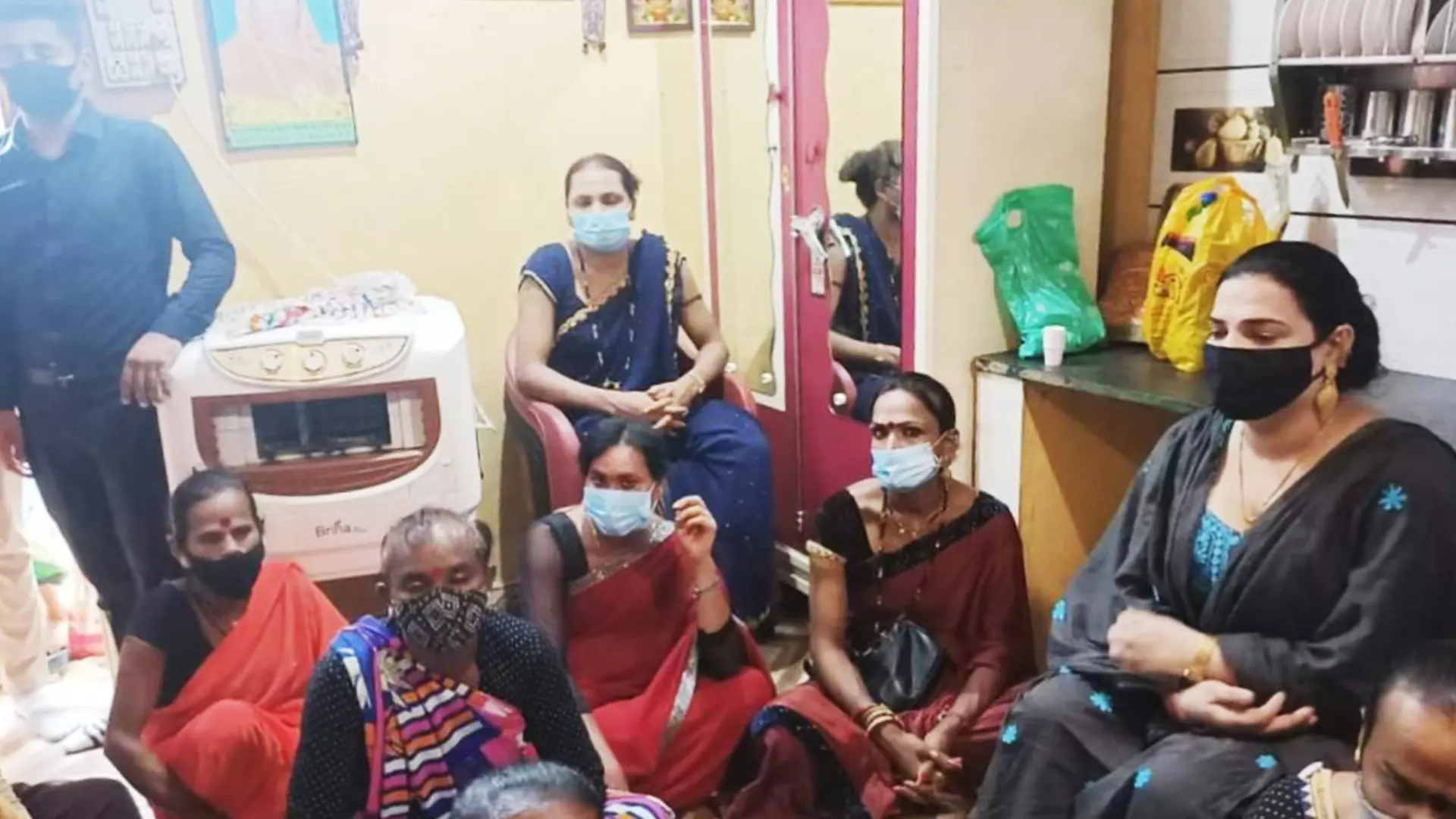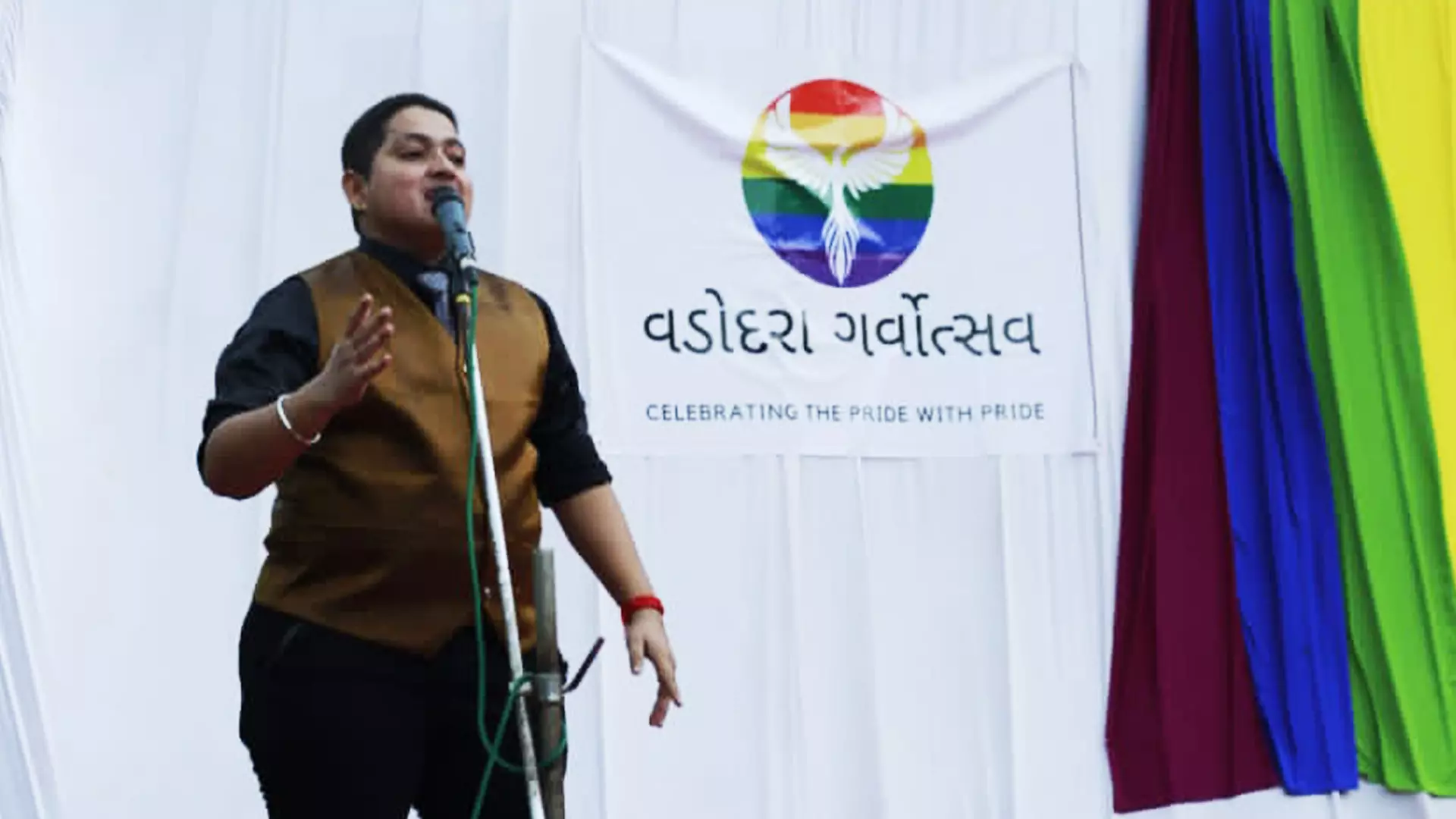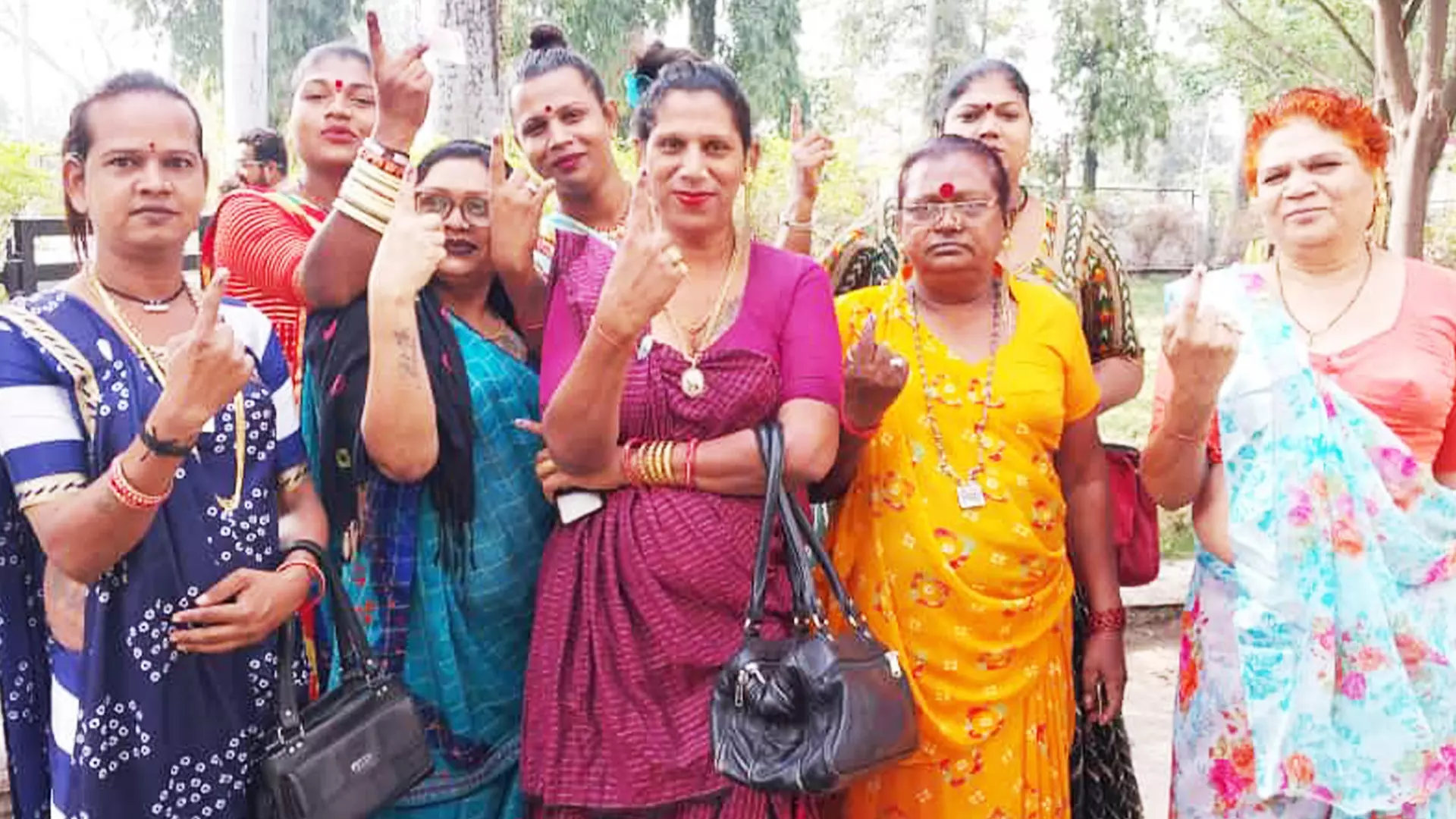
- Home
- India
- World
- Premium
- THE FEDERAL SPECIAL
- Analysis
- States
- Perspective
- Videos
- Sports
- Education
- Entertainment
- Elections
- Features
- Health
- Business
- Series
- In memoriam: Sheikh Mujibur Rahman
- Bishnoi's Men
- NEET TANGLE
- Economy Series
- Earth Day
- Kashmir’s Frozen Turbulence
- India@75
- The legend of Ramjanmabhoomi
- Liberalisation@30
- How to tame a dragon
- Celebrating biodiversity
- Farm Matters
- 50 days of solitude
- Bringing Migrants Home
- Budget 2020
- Jharkhand Votes
- The Federal Investigates
- The Federal Impact
- Vanishing Sand
- Gandhi @ 150
- Andhra Today
- Field report
- Operation Gulmarg
- Pandemic @1 Mn in India
- The Federal Year-End
- The Zero Year
- Science
- Brand studio
- Newsletter
- Elections 2024
- Events
Why transpeople struggle to find a cure for biases in access to healthcare
Last month, Sohail*, a 24-year-old transman from Mumbai was down with fever and cold when he visited an outdoor treatment facility of a government hospital. He, however, returned without treatment and a trauma that scared him for a lifetime.“The doctor came and shouted my old or dead name (assigned at birth). It took me a while to respond as nobody had called me by that name for a while. A...
Last month, Sohail*, a 24-year-old transman from Mumbai was down with fever and cold when he visited an outdoor treatment facility of a government hospital. He, however, returned without treatment and a trauma that scared him for a lifetime.
“The doctor came and shouted my old or dead name (assigned at birth). It took me a while to respond as nobody had called me by that name for a while. A room full of patients began to suddenly stare at me. I felt numb and ashamed,” Sohail tells The Federal.
“Yehi naam hai aapka? (Is this your name?),” shouted the doctor.
“Then he literally pointed at me and asked why my chest is so flat and do I even menstruate. I was numb and taken aback. I did not wait for my turn to get treated. I just went home and I locked myself in my room for a week,” he adds.
Such experiences faced by transpeople while seeking treatment and regular healthcare is not uncommon in India.
Transgender individuals have been excluded from the realm of healthcare services historically. The healthcare system has adopted a narrow focus on preventing HIV and Sexually Transmitted Diseases. As a result, non-communicable diseases, including mental health concerns, in the transgender community often go undiagnosed.

A transgender shelter home in Vadodara named Garima Greh.
“Bengaluru is home to more than 20,000 transgender people and most of them self-medicate when they fall ill. They don’t have any other option. We tend to avoid going to doctors or hospitals because people look at us like we are animals in a circus,” shares Uma, a transwoman and trans rights activist.
“Though some doctors treat us like they would any other patient, a large number of them do not want to touch or treat us. The lack of awareness by doctors’ is one of the primary reasons of reluctance to get a health check-up. Even if they wanted to treat us, they do not know how to go about it. Our anatomy is different and so our needs are different,” Sohail explains.
Medical advice based on value judgements is quick to come for trans people when they visit doctors.
“A transwoman who had gone to consult a doctor in a government hospital for conjunctivitis was berated for having sex with men. The doctor then proceeded to check on another patient while a nurse wrote out a prescription for the transwoman, keeping a clear distance from her,” tells Sylvester, founder of Lakshya, an Ahmedabad-based NGO that works on problems faced by the lesbian, gay, bisexual and transgender community.
“Three years ago, Saira, an HIV-positive transwoman from Bhopal, who was visiting Ahmedabad visited a government hospital for a test. She said the doctor and her assistant laughed at her and chided agar yeh sab bimari tumko nahin hoga toh aur kisko hoga (If you people are not infected with such diseases, then who else will be?). If you are a transgender with HIV, then you face double the discrimination,” shares Sylvester.

Saira now lives in Garima Greh.
“Male patients are awkward in our presence and often pass lewd comments and females do not want us around them. In cases of indoor treatment, many of us are made to sleep in the corridors because we are not wanted in both the male and female wards,” shares a transman who has living in Garima Greh, a shelter home in Vadodara, Gujarat for transpeople. The shelter was opened by Sylvester in 2020.
“As a result of the discrimination we face many transgender people turn to self-medication, alternative medicine and even quacks. Private hospitals are not an option for majority of us as they are too expensive,” he adds requesting anonymity.
“Such terrible experience while seeking something as basic as healthcare has detrimental consequences on the larger community. The fear of discrimination results in profound distrust towards medical establishments. Transpeople often delay or avoid healthcare altogether due to stigma, discrimination, fear of mistreatment, and gender rigidity resulting into critical health care concerns and even death,” tells Sylvester.
Trans health care policies and research
The Supreme Court of India had recognised transgenders as the third gender in the year 2014. Following this, the Union Ministry of Social Justice and Empowerment had constituted an expert committee to examine various issues of the community, based on which the apex court had asked state governments to constitute welfare boards for the transgender community in states.

Transpeople of Rajkot posing after they voted for the first time in 2022 polls.
However, it took five years for Gujarat government to constitute a welfare committee. In a major development for transgenders in the state, the Gujarat government in February 2019, established a Transgender Welfare Board, constituted by the Department of Social Justice and Empowerment.
The 16-member board is designated to take care of housing, education, employment and livelihood of the community.
“We had a meeting couple of months back with the government representative in Vadodara, which led to this decision. The welfare board in our state was much awaited,” gay prince Manvendra Singh Gohil, who has been advocating for rights of LGBT community for the last 18 years had told the media then.
Three years later, the committee is yet to make a visible change in the lives of transpeople of Gujarat.
“Many members of the community do not want to be identified as hijras or eunuchs. We hope they get jobs like the other two genders. While we do hear of rare incidents of a transperson taking up a mainstream job across the country, it is unheard of in our state. We have requested the government to give representation to male-to-female and female-to-male transgender. Apart from healthcare, this is needed to increase the awareness of masses end the discrimination,” adds Gohil.
“In the last two decades, there has been a growing body of research on trans health in India. However, most research is limited to AIDS primarily. Other healthcare concerns, especially of trans men or transmasculine identities, is yet to be understood by healthcare personnel,” says Uma, a transgender rights activist.
Gender-related medical misattribution and invasive questioning, colloquially known as “trans broken arm syndrome”, is ubiquitous. The syndrome is a form of medical discrimination faced by transgender and gender diverse patients wherein a provider incorrectly assumes that a medical condition results from a patient’s gender identity or medical transition.
The phenomenon may either result in the incorrect and explicit misattribution of gender identity or medical transition as being the cause of an acute complaint, or invasive and unnecessary questions regarding a patient’s gender identity or gender transition status. Such inquiry is not needed for most health issues faced by any person.
Some estimates say about 8 per cent of India's population - 104 million individuals belong to the LGBT community in the country. Denying such a huge population size proper healthcare opens the floodgates for a health disaster.
“The transmen experience the most discrimination across healthcare sectors. They are usually asked invasive or inappropriate questions about their bodies with an intention to invalidate their gender identity or what we call misgendering. Deadnaming is another issue where a transperson despite revealing their identity is called by the birth names causing humiliation,” she tells.
In 2019, Parliament enacted the Transgender Persons (Protection of Rights) Act that re-emphasised the role of governments in holistic healthcare services to the community. It advocated providing sex reassignment surgery, hormone therapy, counselling services, HIV sero-surveillance and mental health services to trans people. The Act also sought to review the medical curriculum that caters to transgender persons so that healthcare personnel are aware of trans anatomy and health issues.
Noticeably, the All India Institute of Medical Science (AIIMS), New Delhi, recently announced that the institute will open a Centre of Excellence for transgender healthcare in 2024.
“The plan to open a Centre of Excellence at AIIMS-Delhi is a good news for the community but it would not be able to cater to such a huge population. We need policies to be in place and implemented across states. There should be awareness amongst healthcare workers that the gender identity of a transperson is not attributed for all kinds of health issues. Even in 2021, the state policies in primary and secondary healthcare have made no effort to ensure access for the community. While mental healthcare continues a domain of private sector institutes that is very expensive,” tells Syvester.
(*Some names in the story have been changed to protect identities.)

